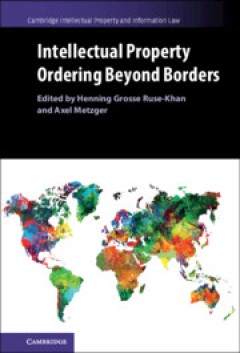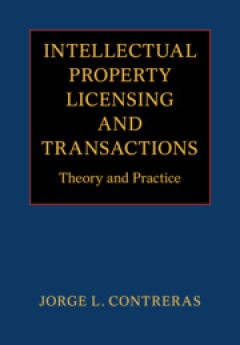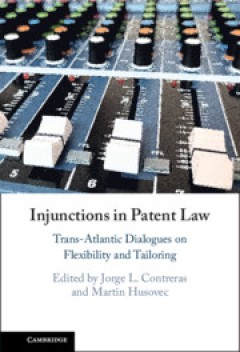Filter by

Intellectual Property Ordering beyond Borders
During the past century, intellectual property (IP) law has expanded within and beyond national borders. The field of IP law was once a niche area concerning authors, inventors, and trademark owners. Today, IP law acts as a complex regime of instruments, institutions, and actors that negotiate overlapping, diverging, and occasionally competing public policies on a global scale.
- Edition
- -
- ISBN/ISSN
- 9781009071338
- Collation
- -
- Series Title
- -
- Call Number
- 346.048 KHA i

Intellectual Property Licensing and Transactions: Theory and Practice
Intellectual property transactions underlie large segments of the global economy, from pharmaceuticals to computing, entertainment to digital content. This first-of-its-kind resource combines practical contract drafting and negotiation skills with substantive legal doctrine in the rapidly growing area of intellectual property transactions and licensing.
- Edition
- -
- ISBN/ISSN
- 9781009049436
- Collation
- -
- Series Title
- -
- Call Number
- 346.048 CON i

Injunctions in Patent Law: Trans-Atlantic Dialogues on Flexibility and Tailoring
Patents are important tools for innovation policy. They incentivize the creation and dissemination of new technical solutions and help to disclose their working to the public in exchange for limited exclusivity. Injunctions are important tools of their enforcement. Much has been written about different aspects of the patent system, but the issue of injunctions is largely neglected in the compar…
- Edition
- -
- ISBN/ISSN
- 9781108891103
- Collation
- -
- Series Title
- -
- Call Number
- 346.0486 CON i
 Computer Science, Information & General Works
Computer Science, Information & General Works  Philosophy & Psychology
Philosophy & Psychology  Religion
Religion  Social Sciences
Social Sciences  Language
Language  Pure Science
Pure Science  Applied Sciences
Applied Sciences  Art & Recreation
Art & Recreation  Literature
Literature  History & Geography
History & Geography